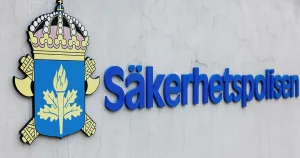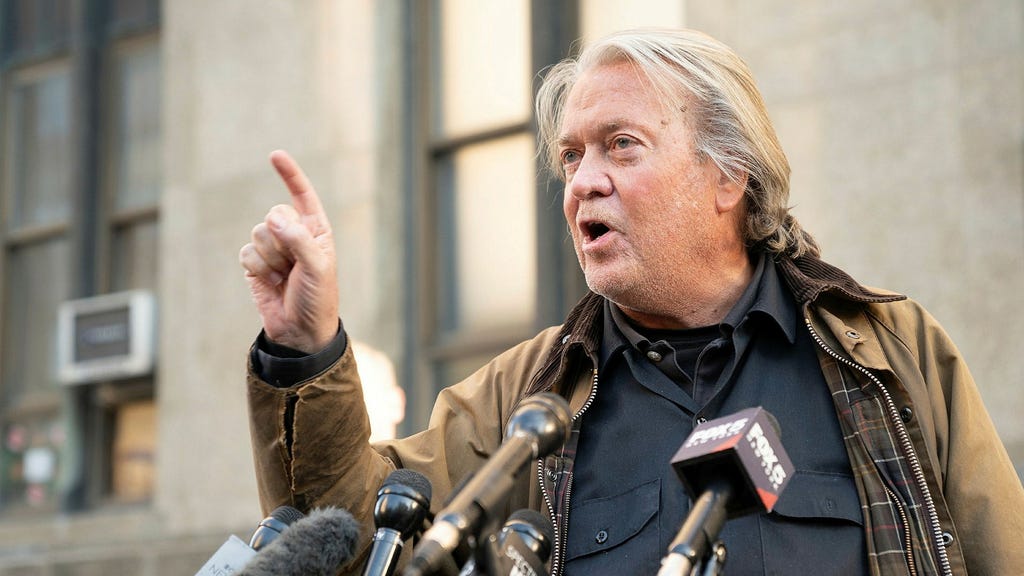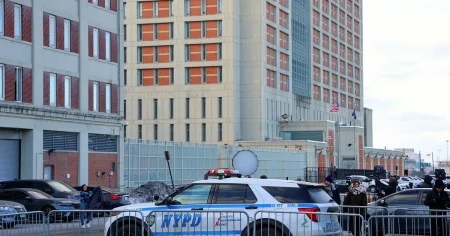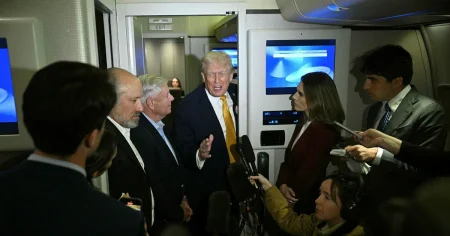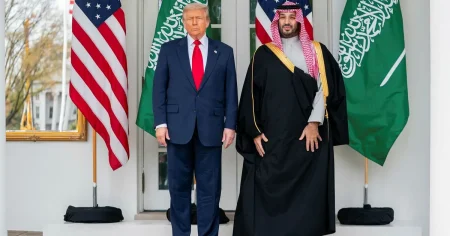The issue of work visas has created a rift within the Trump camp, sparking a fiery exchange between former White House chief strategist Steve Bannon and tech mogul Elon Musk. Bannon, a staunch advocate for restrictive immigration policies, has launched a scathing attack on Musk, whose companies, including Tesla and SpaceX, frequently utilize H-1B visas to recruit highly skilled foreign workers. Bannon’s vitriol stems from Musk’s acquisition of Twitter, now rebranded as X, and the subsequent changes in content moderation policies that Bannon perceives as a betrayal of conservative principles. This disagreement highlights the complex and often contradictory stances within the Republican party regarding immigration, particularly concerning high-skilled workers.
Bannon’s aggressive rhetoric against Musk, captured in an interview with Italian newspaper Corriere della Sera, underscores the depth of the divide. He not only criticizes Musk’s reliance on foreign talent but goes so far as to declare that he would have deported Musk before the inauguration, had he the power. This extreme position reflects Bannon’s broader nationalist agenda, which emphasizes prioritizing American workers and limiting immigration, even in sectors requiring specialized expertise. He views Musk’s use of H-1B visas as undermining American jobs and contributing to a decline in domestic technological prowess. Bannon’s stance further complicates the already contentious debate surrounding immigration policy within the Republican party, and exposes the fissures between the party’s populist and more business-oriented factions.
The H-1B visa program, designed to allow American companies to hire foreign workers in specialized occupations, has become a focal point in the broader immigration debate. Proponents argue that it allows companies to access critical skills that are in short supply domestically, fueling innovation and economic growth. Critics, including Bannon, contend that the program is exploited by companies to suppress wages and displace American workers. This fundamental disagreement lies at the heart of the clash between Bannon and Musk. Musk, representing the perspective of many in the tech industry, argues that H-1B visas are essential for maintaining competitiveness in a global market. Bannon, on the other hand, sees them as a symbol of globalization’s negative impact on American workers, a position that resonates with a segment of the Republican base.
The clash between Bannon and Musk also highlights the tension between economic pragmatism and ideological purity within the Republican party. While many Republicans recognize the importance of attracting skilled workers to drive innovation, others, like Bannon, prioritize nationalist principles and protectionist policies. This ideological battle plays out in the ongoing debate over immigration reform, with different factions within the party advocating for varying approaches. The Bannon-Musk feud exemplifies this internal struggle, revealing the deep-seated disagreements on how to balance economic realities with ideological commitments.
The controversy further underscores the evolving role of immigration as a political wedge issue. Bannon’s attack on Musk weaponizes the H-1B visa program as a tool to criticize not only Musk’s business practices but also his perceived ideological shift. By framing Musk’s reliance on foreign workers as a betrayal of American interests, Bannon attempts to mobilize his base and further solidify his position as a staunch nationalist figure. This tactic reinforces the growing politicization of immigration, transforming what was once primarily an economic policy debate into a cultural and ideological battleground.
In conclusion, the public dispute between Steve Bannon and Elon Musk over H-1B visas serves as a microcosm of the broader tensions within the Republican party and American society at large. It reveals the ongoing struggle to reconcile competing interests: the need for skilled labor to fuel economic growth versus the desire to protect American jobs and prioritize national interests. The clash also demonstrates the increasing politicization of immigration, with figures like Bannon leveraging the issue to advance their own agendas and consolidate their power bases. The debate continues to rage, leaving the future of the H-1B visa program and broader immigration policy uncertain.


